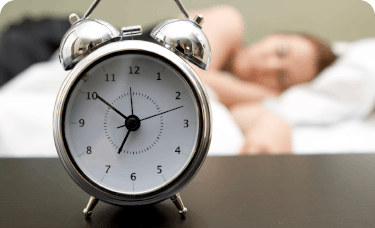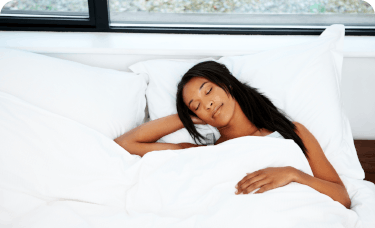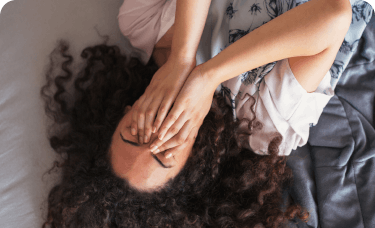Don’t let nighttime head pain get in the way of a good night’s sleep.
Nighttime headaches can have terrible timing: after a busy day, “bam!” a headache hits you, possibly disrupting your sleep and then making your morning miserable too. And because lack of sleep is also a headache and migraine trigger for some, your nighttime headaches can turn into daytime ones. It can be a vicious cycle.
And it’s more common than you might think. A recent survey of WebMD users found that about one out of every five people who suffer from severe headaches specifically get them at night.1
Nighttime headaches can have various triggers, but as usual, stress is a major source. In fact, tension headaches, which account for 80% of all headaches, can strike in the late afternoon or evening and are commonly stress-related. While much more rarer, a hypnic or “alarm clock” headache is one that only occurs at night and causes sufferers to wake with pain.2
Nighttime headaches are certainly a pain, but don’t feel as though you should tough them out. Dr. Keri Peterson, an internist in New York City, shares reasons she tells her patients to treat their nighttime headaches — stat.
Treat So You Can Sleep
More than a third of adults don’t get enough sleep per night, according to a survey by the Centers for Disease Control and Prevention.3 Reasons for lack of sleep vary, but Dr. Peterson notes that head pain certainly doesn’t help. Dr. Peterson notes that migraines in particular can complicate sleeping, with pain and often nausea and vomiting.









